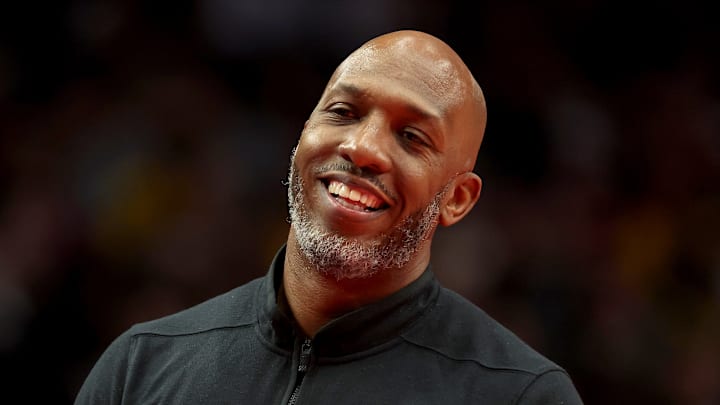An under-the-radar move that hasn't received enough praise this offseason was the Charlotte Hornets' trade for guard Collin Sexton. Charlotte acquired Sexton and a 2030 second-round pick from the Utah Jazz for center (and former Portland Trail Blazer) Jusuf Nurkic.
Analysts Sam Vecenie and Bryce Simon couldn't understand this deal from Utah's perspective when they covered it on the Game Theory Podcast.
"The Hornets' front office is genuinely very, very good. They get Collin Sexton and what projects down the road in 2030 to be a potentially good second-round pick. For Jusuf Nurkic? It's not news that Nurkic isn't always the easiest guy to be around; it feels like that for his teams. And then on top of it, he just isn't very good anymore. What am I missing here? Because Collin Sexton is, at the very least, good... There are limitations, and he's probably best coming off the bench, for sure. But he's definitely good at basketball," Vecenie said.
"First, I don't understand how Utah had to give up a pick in this deal," Simon added. "That makes no sense to me. You traded away the better player. There's no advantage contract-wise. They're both expirings... If you wanted a backup center, you could've gotten it way easier than giving up Sexton with a second-round pick. I don't like this for Utah."
Blazers dumped Jusuf Nurkic at the perfect time
Sexton is in his prime at 26 years old and coming off a solid season in which he averaged 18.4 points, 4.2 assists, and 2.7 rebounds on efficient 48/41/87 shooting splits. Meanwhile, Nurkic hasn't been the same level player since leaving Portland.
The Blazers sent Nurkic, Keon Johnson, and Nassir Little over to the Phoenix Suns as part of the blockbuster three-team Damian Lillard trade, getting Toumani Camara and Deandre Ayton in return. Nurkic struggled to find his footing in Phoenix, averaging 10.9 points in the 2023-24 season. But in retrospect, he was also the unfair scapegoat for the Suns, as their roster problems continued well beyond his trade to Charlotte last season. The Suns desperately wanted to offload Nurkic to get more financial flexibility and improve their team chemistry, attaching a 2026 first-round pick to get the deal done. Perhaps Vecenie is right and the Hornets' front office doesn't get enough credit, because they then managed to turn Nurkic into Sexton, somehow landing even more draft capital in the process.
The Blazers hoped that a change of scenery would rejuvenate former No. 1 overall pick Ayton. That wasn't the case, as evidenced by his recent contract buyout. The silver lining from that trade is that Portland now has a true building block in All-Defensive wing Camara. The player initially viewed as the sweetener in the Ayton-Nurkic swap ended up having the most value, making it an unexpected fleece for the Blazers. Although their Ayton experiment didn't pan out, Portland's rebuild is in a prime position with Camara and addressing the center position with their two recent first-round picks, Donovan Clingan and Yang Hansen.
The same can't be said for the Jazz. Their backcourt problems have only increased with Sexton's departure. And it's difficult to see the vision or reasoning behind adding a 30-year-old Nurkic to a roster that won just 17 games last season. The Blazers need all the help they can get in the loaded Western Conference. Overall, the West continued to strengthen this summer. But at least the Jazz won't be catching up to them in the standings anytime soon. This head-scratching trade for Nurkic was the latest reminder of that.
